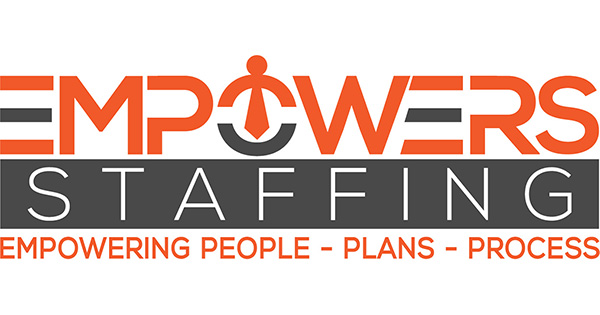Finding the wrong candidate is worse than not finding one. It just means you’ll have to start over again in a few months.
As a recruiter, you may have to search far and wide for a perfect candidate. But then sometimes, when we don’t find what we are looking for, it is easy to feel like our messages aren’t getting through.
Prominent candidates are often overwhelmed with information about new opportunities, so recruiters need to create a compelling outreach program to capture and retain their attention.
With years of experience and expertise, we know the best way to work with candidates and employers, and we also know how to avoid pitfalls in the process. But many professionals in this industry still face a few challenges.
According to the U.S. Department of Labor, a poor hiring decision can cost up to 30 percent of an employee’s annual salary. The numbers are daunting, but you don’t need to build pressure on yourself for it.
Instead, observe and try to avoid serious recruiting mistakes. So, we share some common mistakes recruiters make and how you can avoid them.
1. Treating Different Audiences the Same Way
Every person you meet has a unique motivation that drives them to seek new opportunities. As a recruiter, part of your job is to figure out what that motivation is. Research the people you talk to. Check them out on social media and reach out to them either yourself or via a mutual connection. Remember to adapt your approach depending on the position you are hiring for. For instance, the methods of outreaching to tech professionals should look different from hiring sales representatives. Think about the specific profile of each role and targeting channel before proceeding.
2. Prioritizing Process More Than People
Notably, candidates want to talk to humans, not the rehearsed pitch! No one wants to talk to a recruiter who treats the conversation as a transaction. On the other hand, we’re in the staffing business. That means finding talent is all about relationships, gaining trust, and creating experiences that excite the candidate to get on the job. So don’t forget to show them who you are. Look for a common language of the candidate and the employer. If you know someone they know, mention it. If you’re impressed by their resume, let them know. Minor details really make a difference.
As the top IT, Banking and Finance Recruiting and Staffing company in the USA, our job is to guide candidates through the job search and hiring process and make it an excellent experience for them. We make sure that the candidates you interact with end up on a personal and positive experience. When you say you will get back to them, do so. Set reasonable expectations, be transparent, and don’t make promises you can’t keep. If you want to stand out, be honest and show that you care! This extra effort will be beneficial for you to attract more qualified candidates.
3. Asking Predictable Questions, Which Does Not Reveal Anything About the Candidate
If you want to grab some good talent, ask questions you don’t know the answer to, and the candidate can’t prepare.
Every powerful interviewer has a favorite question, but they share a common goal, i.e., getting the candidate out of their comfort zone and forcing them to think about the answer. If you can do that, you’ll get an answer that says something about the candidate’s ability to solve problems and think on their feet.
For instance, the unique question can be, “Tell me some truth that almost no one agrees with you on.” This is mind-boggling, which will demand that the candidate think fast and creatively.
4. Losing Touch with Candidates
The job market is at the top as ever, with the threat of ‘big resignations’ on the horizon.
And with so much talent, it’s worth noting to keep in mind that the best candidates won’t always be prepared to endure a long, lengthy hiring process. Moreover, even if they like your option, they may accept a different offer if they haven’t heard from you in weeks. Hence, you can make life easier for external and internal candidates by staying in touch with them, keeping contacts warm, and checking in throughout the hiring process.
Some phrases that will fill your promise with confidence. You can speak to a candidate like, “You’ll never go a weekend without hearing from me.” You can also say, “Even if there’s no news, I’ll let you know.”
Every Friday afternoon, you can devote specific time to connect with candidates who are still waiting on a follow-up when you know you won’t be interviewing. If that does not work for your schedule, try setting reminders that alert you to shoot off a message once a week to candidates who are on hold.
5. Skills Aren’t Everything
Some resumes are quite impressive, listed with hundreds of courses, incredible technical exposure, and a portfolio and knowledge base that would be more appropriate for SpaceX.
But what about communication, reliability, teamwork, and leadership qualities? How does this person handle the communication between a programmer and a client? Great developers often show a healthy combination of essential and soft skills, while some may even exceed the latter.
Keep in mind that basic skills can often be learned with enough practice, while soft skills are more dependent on personality traits, which means they are more challenging to develop.
Instead of focusing on work experience and achievements, research team relationships. Be sure to ask about past conflicts, how they were resolved, and ideas to avoid them in the future. If you’re so inclined, try doing some role-playing exercises that involve resolving conflicts or interacting with clients.
Pay attention to short-term projects or projects that the applicant has left. Ask them what happened and could have been done differently. A good indicator is that the candidate is honest about his mistakes and shows a character that he learned from those mistakes.


